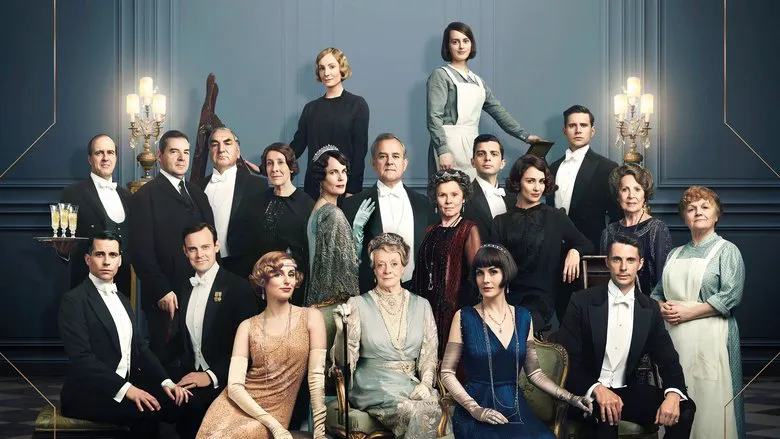Downton Abbey: An Unlikely Friendship Between Foes
It’s genuinely surprising to see the camaraderie between Thomas Barrow and Miss O’Brien in Downton Abbey. Their shared habit of scheming has led fans to affectionately dub them the “smoking duo,” a testament to their intertwined lives within the grand estate.
While their roles often pit them against other members of the household, the subtle nuances of their friendship offer a poignant glimpse into their characters.
To some, the bond might even appear to blur the lines into something more intimate. However, Thomas’s personal preferences clearly define the boundaries of their relationship, dispelling any romantic notions.
As Maxim Gorky wisely stated, “The best friend is the one who doesn’t say much, but is able to connect with you silently.” This quote perfectly mirrors the unspoken understanding and silent alliance between Thomas and O’Brien.
The Persistence of Villainous Friendship
Despite their shared proclivity for villainy, their friendship remarkably endures. This invites a compelling question: Why do even the most flawed individuals yearn for companionship? Perhaps the essence of friendship lies in the unyielding support provided, despite another’s imperfections.
Some believe that Thomas and O’Brien’s connection is based purely on mutual exploitation, nothing more than a transactional arrangement.
I would disagree. Their shared status as largely disliked characters creates a unique bond, a mutual understanding where they act to support one another. Friendship, like love, encompasses a spectrum of expressions and motivations.
Their actions often attract disapproving glances, and Mrs. Hughes, the observant housekeeper, instinctively suspects mischief whenever she finds them whispering conspiratorially. Yet, they remain seemingly impervious to external judgment
Thomas’s Complex Character: Beyond the Facade
Beneath his handsome exterior, Thomas elicits a secret admiration from the young and naive maid, Daisy. Her affections are obvious, but unfortunately for Daisy, Thomas harbors no romantic interest towards women.
The Scandal and its Ripple Effects
When Lady Mary finds herself embroiled in a scandalous situation, fingers point towards Edith, the second daughter, for allegedly writing to the Turkish embassy. Such an act would be considered scandalous, harming Mary and tarnishing the reputation of the entire Downton Abbey family.
Edith’s potential actions likely stem from a confluence of factors: Mary’s overwhelming beauty and popularity cast a shadow on Edith, and Mary’s detached reaction to the tragic death of their cousin Patrick, who was also Edith’s secret love, during the Titanic disaster, fueled her resentment.
As the age-old adage goes, good news crawls while bad news flies. Even if Edith had remained silent about the scandal, Thomas undoubtedly intended to expose it, using the information as leverage to advance his own ambitions.
From my perspective, Thomas’s actions are driven by blatant self-interest, displaying a regrettable lack of consideration for the family that has offered him employment. He willingly sacrifices Mary’s reputation for his personal gain.
Redemption and Regret: A Glimmer of Humanity
The cruel reality unveils that Thomas was the one who originally led the Turkish diplomat into Mary’s room that life-changing night. The fact that a woman could be so violated within the supposed safety of her own residence is indeed tragic.
Paradoxically, a sliver of redemption shines through as Thomas develops a genuine affection for Mary’s son, George, after Matthew’s untimely passing. George, having never known his father, frequently asks Thomas to lift him up and “fly” him around the grounds.
Thomas, never having the opportunity to have children of his own, eagerly complies with George’s requests. Mary, observing this tender interaction, gently reminds George not to bother Thomas too much, remaining oblivious to the fact that this very servant was instrumental in the scandal that overshadowed her life years prior.
O’Brien’s Ruthless Ambition: A Study in Self-Preservation
O’Brien, hailing from a humble farm in northern Scotland, is characterized by her stoic demeanor and remarkable ability to provoke reactions. Fueled by a mistaken belief that the Countess intended to dismiss her, she spitefully placed a bar of soap in the bathroom, resulting in the pregnant Countess slipping and falling.
However, during a devastating epidemic, while Matthew’s fiancée tragically succumbed to the illness, the Countess miraculously recovered under O’Brien’s unwavering care, even as the Earl became entangled in an emotional affair.
Human beings are complex, exhibiting an array of contradictory traits, even in characters who appear predominantly villainous.
At the conclusion of the third season of “Downton Abbey,” O’Brien, a skilled hairdresser with an ambition to serve as a personal lady’s maid, seized a sudden opportunity with a new employer and departs from Downton Abbey, choosing to embrace life on her own terms.
Lessons Woven into the Downton Tapestry
The intertwined stories of Thomas and O’Brien impart valuable lessons, illustrating that genuine friendship can flourish even in the most improbable of circumstances.
Thomas repeatedly seeks love but faced rejection, highlighting his inner turmoil. And O’Brien, like a 2.0 version of Mrs. Hughes, recognizes the hardships faced by working-class women and chooses to go independent and depend on herself.
These characters are vivid and enduring, leaving an imprint on viewers long after the credits roll.
Their relationship surpasses facile notions of good versus evil, exploring more of human nature and connection. Sometimes friendship can be more reliable then love.